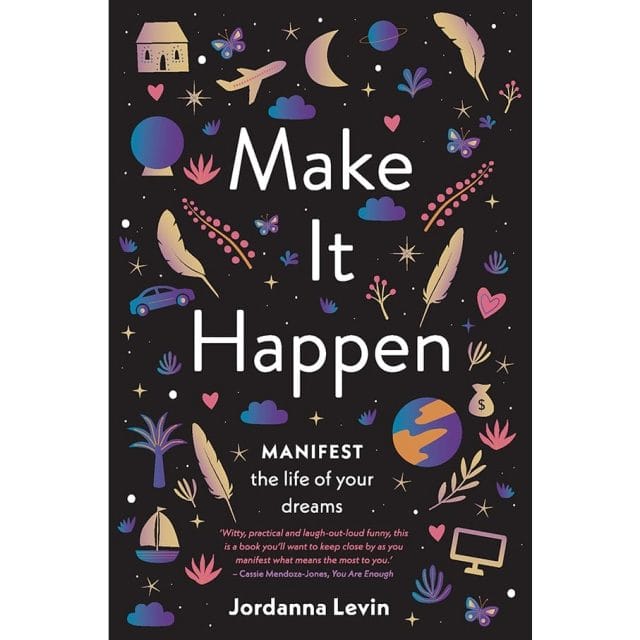
As a romantic relationship progresses and matures, it is often difficult to assess the present state of your connection with your partner. Are things going well? Is there room for improvement? Are some underlying issues causing cracks in the foundation of your partnership?
Understanding the truth of what’s happening between you and your significant other requires a bit of honest self-reflection. In this blog, we will explore various ways to thoughtfully and objectively assess the current state of your relationship. We will discuss different methods for opening a dialogue, recognizing any problems, and acceptance of where you are on your journey together. By taking small but meaningful steps forward, you’re setting yourself up for a lifetime of happiness that starts today.
Table of Contents
15 Questions To Assess the Present State of Your Relationship
We all have relationships that come and go in our lives. However, it is important to assess the present state of your relationship in order to ensure that it will last for the long term. To assist with this process, here are a few self-assessment questions to ask yourself about the current state of your relationship.
- Are you and your partner growing together, or growing apart? – In a healthy relationship, both partners should support each other’s growth and development. Studies show that couples who prioritize personal growth and development have stronger relationships than those who don’t.
- Are you and your partner communicating effectively? – Effective communication is key to any successful relationship. Are you and your partner able to communicate openly and honestly about your feelings and needs? If not, it might be time to work on your communication skills.
- Do you and your partner make joint decisions? – Compromise and collaboration during decision-making are essential for a healthy relationship. A study found that couples who communicate assertively and collaboratively work better together in decision-making.
- Are you and your partner spending quality time together? – Spending quality time together is essential for maintaining a healthy relationship. Do you and your partner make time for each other regularly, or has your relationship become more like roommates?
- Are you and your partner able to resolve conflicts in a healthy way? – Conflict is inevitable in any relationship, so knowing how to handle it is essential. Are you and your partner able to navigate conflict and reach a resolution in a healthy way?
- Do you and your partner allow each other to be vulnerable in the relationship? – Dr. Brené Brown, a renowned author and professor at the University of Houston, says that couples who share emotional vulnerability are more likely to have a successful and long-lasting relationship.
- How well do you handle stress together? – Relationships are tested in times of stress. Research suggests that couples who manage stress together, without letting it spill over into the relationship, tend to have stronger bonds.
- Do you have financial compatibility? – Differences in spending habits and financial goals can be a major source of conflict. It’s important to discuss and align on financial matters for a harmonious relationship.
- Can you laugh and be playful together? – The ability to share humor and playfulness adds joy and resilience to a relationship. Studies show that couples who laugh together often have stronger connections.
- Is there mutual respect for each other’s career aspirations? – Supporting each other’s professional goals and respecting their career choices is crucial for a fulfilling partnership.
- How do you handle disagreements on parenting styles? – For couples with children, aligning on parenting approaches and resolving conflicts in this area is important for both the relationship and the children’s well-being.
- Do you share a similar lifestyle and health habits? – Compatibility in daily habits and health-related choices can greatly impact relationship satisfaction. This includes diet, exercise, and other lifestyle choices.
- How do you approach personal growth and self-improvement? – A relationship where both partners encourage each other’s personal growth and self-improvement tends to be more dynamic and satisfying.
- Do you respect each other’s personal space and boundaries? – Respecting personal space and boundaries is crucial for maintaining individuality and a healthy relationship dynamic.
- How do you handle external pressures and influences on your relationship? – Couples who can withstand external pressures, such as societal expectations or family opinions, and remain united often have stronger relationships.
The state of your relationship is not static but rather dynamic, and it’s essential to assess it regularly to ensure its strength and longevity. Taking a self-assessment will help you identify your relationship’s current state and provide you with insights about what you can do to make your partnership stronger.
Evaluating Your Partner’s Perspective
Evaluating your partner’s perspective is a key step in understanding their wants and needs in a relationship. Taking a moment to consider their opinion and feelings is an important part of building a strong and healthy bond.
One way to do this is to practice active listening. Pay attention to the words they use and the tone of voice they use when discussing issues. Listen for the underlying feelings being expressed.
Additionally, don’t be afraid to ask questions. Doing so will help you gain insight into how your partner interprets events and situations. Taking the time to understand their perspective can help you better navigate any disagreements that may arise.
Benefits of Self-Assessment
Self-assessment is a great way to stay in tune with your current state of affairs and to identify any areas of improvement. It is essential for personal growth and development. With self-assessment, you can identify any relationships which are in need of attention and then take action to make sure that they are nurtured and improved. Here are five benefits of self-assessment when it comes to your relationships:
1. Helps to identify areas of improvement: Self-assessment gives you the opportunity to look at your relationship objectively and to identify any areas which need improvement or where things are going wrong. This allows you to take action to ensure that your relationship is healthy and strong.
2. Helps to promote communication: Self-assessment can help to identify communication problems in your relationship and help you to be more open and honest with each other. This can be beneficial for both parties involved.
3. Can help to identify unhealthy patterns: Self-assessment can help to identify any unhealthy patterns in your relationship. If you identify any such patterns, then you can take steps to change them and to ensure that your relationship remains healthy.
4. May help to identify potential danger points: Self-assessment can help to identify any potential danger points in your relationship. This can help you to take action to prevent any negative consequences.
5. Can help you to make decisions: Self-assessment can help you to make decisions about your relationship. You can use self-assessment to evaluate the present state of your relationship and decide if any changes are necessary.
Self-assessment can be a great way to assess the present state of your relationship and to make sure that it is in a healthy and strong condition. By taking the time to evaluate the present state of your relationship, you can identify any areas which need improvement and take action to address them.
Signs of a Healthy Relationship
A healthy relationship means different things to different people. But there are a few common signs of a healthy relationship that can help you assess the present state of your relationship.
One of the most important signs of a healthy relationship is mutual respect. Both partners should respect each other’s individual needs and views. They should also be willing to compromise and speak openly and honestly about their feelings and desires. Additionally, couples should be able to trust each other and depend on each other for emotional and physical support. If you’re both willing to put in the work to make the relationship stronger and better, then you’re likely in a healthy relationship.
Another key sign of a healthy relationship is sharing common interests and goals. It’s important to be able to share hobbies and activities together so that you can strengthen the bond between you. Also, it’s essential to be able to communicate openly and support each other in each other’s goals and aspirations. Finally, a healthy relationship will have a good balance of time spent together and time apart. Both partners should be able to have some alone time and space while also spending quality time together.
These are just a few of the signs that can help you assess the present state of your relationship and see if it’s healthy. As long as both of you are supportive, communicative and honest, you can be sure your relationship is on the right track.
The Difference Between Connection and Relationship

Connection and relationship are two terms that are often used interchangeably, but there is a distinct difference between them. Connection involves a degree of mutual understanding and trust between two people, while a relationship implies a deeper level of commitment and emotional investment.
A connection can be developed over a brief period of time, while relationships take time to build. When assessing the present state of your relationship, it is important to understand the distinction between connection and relationship to determine whether a stronger bond can be established.
Ways to Improve Your Relationship
Having a great relationship doesn’t come easy – it takes effort from both partners to make it work. And when issues do crop up, it’s important to know how to address them in the best way possible. To help keep your relationship strong, here are five tips:
1. Make communication a priority by not only talking about the big topics but also the small ones. Establish a habit of talking about your everyday life, including your likes, dislikes, and goals.
2. Accept and understand each other’s differences. Realize that the two of you are not the same, and instead, learn how to appreciate your differences.
3. Spend quality time together by taking part in activities you both enjoy. This could be anything from hiking, baking, or playing a board game.
4. Be open to compromise and negotiation when disagreements arise. Make sure to listen carefully and be willing to give and take.
5. Show your appreciation for each other. Taking the time to appreciate your partner’s efforts goes a long way in strengthening your relationship.
Fostering a strong relationship can be a challenge but following these five simple tips can help make sure your bond remains strong. Put in the effort and communication to understand what each of you needs and be present for it all – that is the key to making your relationship last.
When It’s Time to Seek Professional Help
When it comes to romantic relationships, it’s important to know when to seek professional help. Sometimes, we can be in over our heads and a little extra guidance can go a long way.
Unfortunately, many couples wait an average of six years before seeking counselling, which can lead to further damage. So, what are the signs that indicate it’s time to take the next step?
If a couple is experiencing regular conflicts or communication breakdowns, this may indicate a need to explore counselling options.
Likewise, if trust has been broken or if infidelity is present, therapy could provide the structure and emotional safety they need to work through their issues.
Lastly, if they find themselves unable to reach a resolution on their own – despite their best efforts – then seeking help from a third party may be a wise move.
Ultimately, recognizing when it’s time for outside assistance may be beneficial for the relationship. Counselling provides couples with an opportunity to express themselves openly, without fear of judgment.
Taking care of yourself and your partner should always be priority one – so don’t let pride get in the way of finding the help you deserve
Frequently Asked Questions (FAQs)
How often do you evaluate the health of your relationship?
It is important to regularly evaluate the health of your relationship with your significant other in order to maintain a strong and fulfilling partnership. This can range from monthly check-ins to daily reflections. The frequency of evaluation may vary depending on individual preferences and the stability of the relationship.
What are some telltale signs that your relationship is healthy?
Healthy relationships are characterized by open communication, mutual respect, trust, and a sense of partnership. Signs that your relationship is headed in the right direction include good conflict resolution skills, shared values and goals, and a willingness to work through challenges together.
How do women assess a man’s value for a relationship?
Women may assess a man’s value for a relationship through a variety of factors including physical attraction, emotional intelligence, financial stability, ambition, and communication skills. It may be important for men to be authentic and genuine, demonstrating their strengths and vulnerabilities in order to build trust and establish a strong foundation for a healthy relationship.
What are the simplest ways to assess a person psychologically?
Psychological assessment is a complex process that is best conducted by trained professionals. However, there are certain traits and characteristics that can help determine compatibility in a relationship or friendship. These include shared values, communication style, emotional intelligence, and overall compatibility in terms of personality and lifestyle preferences. It is important to approach any type of assessment with an open mind and a willingness to learn and grow together.
Final Thoughts
To truly assess the present state of your relationship, take a step back and evaluate both the highs and lows that define your connection.
Take a moment to see your partnership through multiple lenses – communication, trust, compatibility, and shared values – and ask questions that help fill any gaps in knowledge. Being aware and honest with yourself will help you determine if it’s time to take action or if the foundation is strong enough to sustain the future of your bond.
Whatever you may uncover though, it’s important to remember that relationships are always works in progress – so don’t let yourself become disheartened by any flaws that manifest themselves.
No matter the outcome, your willingness to assess the present state of your relationship is a testament to your commitment and growth as a couple.
Claire Sy
Tags:
2 comments
Leave a Reply Cancel reply
You must be logged in to post a comment.













[…] You’re constantly making sacrifices: Compromise is a part of any relationship, but if you’re always the one making sacrifices, it might be time to take a step back and reassess. […]
[…] for signs of emotional connection and commitment. If the person is genuinely interested in you as an individual, values your happiness, and is […]